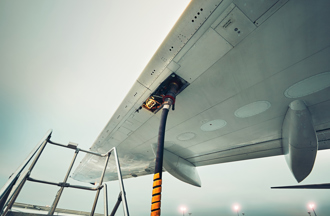
Geneva - IATA takes note of the COP28 outcome, calling on nations to transition away from fossil fuels. This landmark agreement is an opportunity for the advancement of renewable fuels globally, including Sustainable Aviation Fuels (SAF).
“The airline industry is committed to achieve net zero carbon emissions by 2050. To do that we know that we need to transition from fossil fuels to sustainable aviation fuel. It’s encouraging that governments have formally recognized the same necessity. To move forward we need SAF production to rapidly increase to meet demand that is already there. That means governments must deliver policies to support SAF production. And fuel producers must heed the clear call from governments in the COP 28 declaration for them to prioritize investments in renewable fuels,” said Willie Walsh, IATA’s Director General.
Effective production incentives for SAF should support the following objectives:
- Accelerating investments in SAF by traditional oil companies, way above current levels.
- Ensuring renewable fuel production incentives encourage sufficient SAF quantities
- Focusing stakeholders on regional diversification of feedstock and SAF production
- Identifying and prioritizing high potential production projects for investment support
- Delivering a global SAF Accounting Framework
IATA expects over 60% of the carbon abatement needed to reach net zero emissions by 2050 to be done through SAF. In 2023 although SAF accounted for just 0.2% of aviation’s fuel needs, every drop of SAF available was bought, at a cost of around $1 billion.
For more information, please contact:
Corporate Communications
Tel: +41 22 770 2967
Email: corpcomms@iata.org
Notes for Editors:
- IATA (International Air Transport Association) represents some 350 airlines comprising over 80% of global air traffic.
- You can follow us on X for announcements, policy positions, and other useful industry information.
- Fly Net Zero

